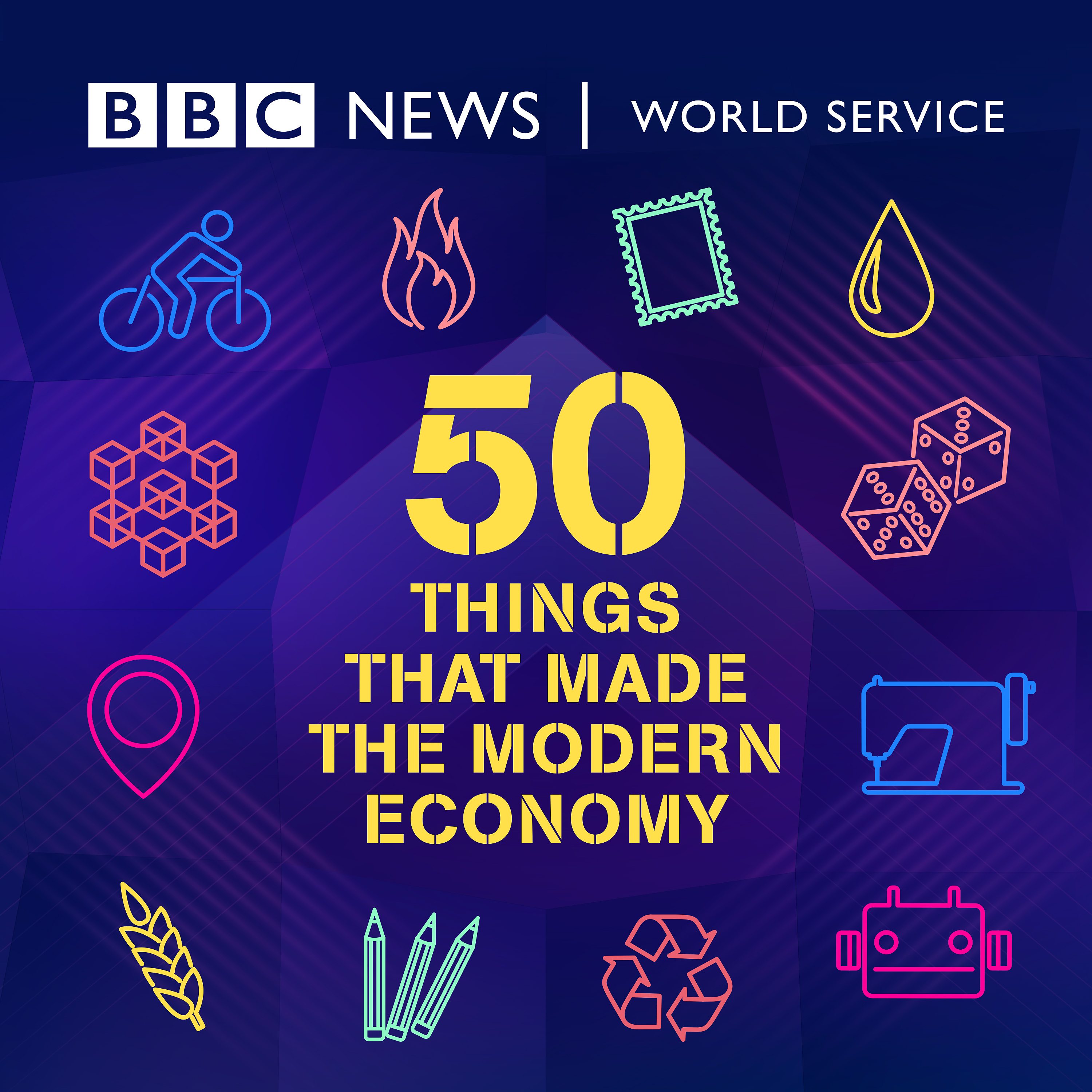

50 Things That Made the Modern Economy
BBC World Service
Tim Harford tells the fascinating stories of inventions, ideas and innovations which have helped create the economic world.
Episodes
Mentioned books

Jun 10, 2019 • 9min
'Like' button
Facebook’s 'like' button is ubiquitous across the web. It’s how user data is collected, meaning adverts and newsfeeds can be targeted more effectively. Some say there’s nothing to worry about, but others point to the Cambridge Analytica scandal, suggesting how Facebook might shape our opinions. But is there something else we should be worried about? Approval from our friends and family can be addictive – so is the pursuit of “likes” on social media the reason we’re glued to our mobile phones? Tim Harford asks how should we manage our compulsions in this brave new online world.

Jun 3, 2019 • 9min
Dwarf wheat
The Population Bomb, published by Stanford biologist Paul Ehrlich in 1968, predicted that populations would grow more quickly than food supplies, causing mass starvation. Ehrlich was wrong: food supplies kept pace. And that’s largely due to the years Norman Borlaug spent growing different strains of wheat in Mexico. The 'green revolution' vastly increased yields of wheat, corn and rice. Yet, as Tim Harford describes, worries about overpopulation continue. The world’s population is still growing, and food yields are now increasing more slowly – partly due to environmental problems the green revolution itself made worse. Will new technologies come to the rescue?

May 27, 2019 • 9min
Pornography
Did pornography help develop the internet? And has the internet made it more difficult for porn producers to make money? From photography, to cable television, to the video cassette recorder, there’s a theory that pornography users are some of the earliest adopters of new technology. Five in six images shared on the Usenet discussion group in the 1990s were pornographic, one study claimed. But, as Tim Hartford describes, the internet has made it easier for people to access pornography, but made it harder for anyone to make money from it.

May 20, 2019 • 11min
Recycling
Could recycling to save money be the answer to saving the planet? For decades, wealthy countries have been shipping their waste to China for sorting and recycling. Now China is getting wealthier, it no longer wants to be a dumping ground. So could we take another look at the cold, hard cash that recycling generates? After all, the idea it’s a moral obligation is relatively new and, as Tim Harford says, for centuries people reused and recycled to save money, not the environment.

May 13, 2019 • 11min
Spreadsheet
A grid on a computer screen took the world of accountancy by storm in the early 1980s, making many accounting tasks effortless. But should we consider this 'robot accountant' more carefully? As Tim Harford explains, the digital spreadsheet is a 40-year-old example of what automation could do to all of our jobs.

May 6, 2019 • 10min
Brick
'I found Rome a city of bricks and left it a city of marble,' Caesar Augustus apparently boasted. If so, he wasn’t the only person to dismiss the humble brick. They’ve housed us for tens of thousands of years. They are all rather similar – small enough to fit into a human hand, and half as wide as they are long – and they are absolutely everywhere. Why, asks Tim Harford, are bricks still such an important building technology, how has brickmaking changed over the years, and will we ever see a robot bricklayer?

Apr 29, 2019 • 9min
Mail order catalogue
Some say the Montgomery Ward shopping catalogue is one of the most influential books in US history. It transformed the middle-class way of life in the late 19th and early 20th Centuries. Ward struggled to get people to understand mail order shopping. His prices were so low, people thought there was a catch. Soon, though, this type of retail would improve roads and the postal service. Tim Harford describes how similar dynamics are changing today’s middle-classes in China, with the internet replacing the postal service and e-commerce the new mail order.

Apr 22, 2019 • 9min
Bicycle
The bicycle was to prove transformative. Cheaper than a horse, it freed women and young working class people to roam free. And the bike was the testing ground for countless improvements in manufacturing that would later lead to Henry Ford’s production lines. Tim Harford considers whether the bicycle has had its day, or whether it’s a technology whose best years lie ahead.

Apr 15, 2019 • 9min
QWERTY
The QWERTY keyboard layout has stood the test of time, from the clattering of early typewriters to the virtual keyboard on the screen of any smart-phone. Myths abound as to why keys are laid out this way – and whether there are much better alternatives languishing in obscurity. Tim Harford explains how this is a debate about far more than touch-typing: whether the QWERTY keyboard prospers because it works, or as an immovable relic of a commercial scramble in the late 19th century, is a question that affects how we should deal with the huge digital companies that now dominate our online experiences. Producer: Ben Crighton
Editor: Richard Vadon(Image: qwerty keyboard, Credit: Getty Images)

Apr 15, 2019 • 15min
Bonus 4: Woodpecker and black box
The last bonus episode of our new podcast. For more, search for 30 Animals That Made Us Smarter and subscribe. Or find it here: www.bbcworldservice.com/30animals
This one is about a bird’s remarkable skull and the quest to protect aeroplane flight recorders.
#30Animals


